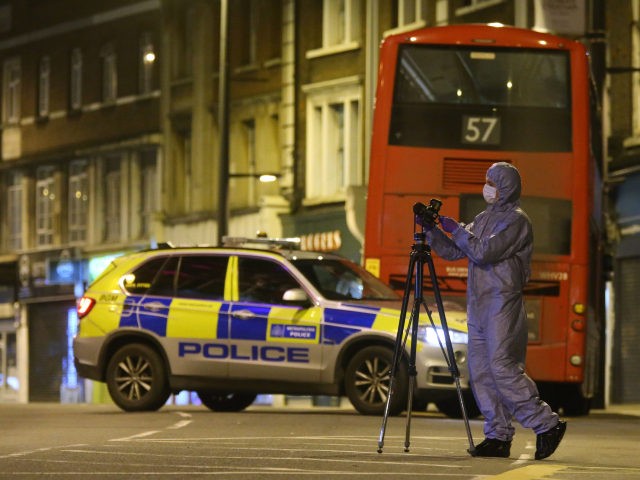An inquest jury has ruled that the Streatham terror attack could have been prevented had convicted terrorist Sudesh Amman had been recalled to prison after undercover officers had become suspicious when he bought items for making his fake suicide belt.
Twenty-year-old Sudesh Amman stabbed two people on a busy street in Streatham, south London, with a carving knife he stole from a shop while wearing a fake suicide vest on February 2nd, 2020. Just ten days earlier, he had been released from prison after serving two years of a 40-month prison sentence for possessing and disseminating Islamist terrorist material.
An inquest at the Royal Courts of Justice heard that on January 31st, 2020, undercover officers surveilling Amman had caught him buying kitchen foil, parcel tape, and bottles of carbonated soft drinks, which they feared could be used to make a hoax suicide bomb device. Despite police and the British domestic intelligence network MI5 being concerned about Amman, HM Prison and Probation Service decided not to recall him to prison.
After 11 hours of deliberation, the jurors determined on Friday that had HMPS had “missed an opportunity” and if it had recalled Amman to prison after concerns were raised, the terror attack would have been stopped, according to the BBC.
The jury was told that he could have been sent back to jail if probation services believed that his behaviour “indicated an increased or unmanageable risk of serious harm to the public”.
Streatham Terrorist Was Being Followed by Nine Undercover Cops When He Attacked https://t.co/8VXqW64h1H
— Breitbart London (@BreitbartLondon) August 3, 2021
As a result of the probation service’s decision, Amman was put under round-the-clock armed surveillance. But despite so many eyes being on the convicted terrorist, on that day in February, he was able to stab two people. The jury had heard earlier this month that at the time of the attack, he had been surveilled by a total of nine officers. Amman was shot dead by two of them about one minute after the attack began.
The jury also heard that counter-terror police wanted the Prison Service to stop Amman’s early release after a note was found in the 20-year-old’s cell which “appeared to show a pledge of loyalty to the leader of Islamic State”, but the prisons body said it could not justify the request.
The law has since been changed to end the automatic early release of those convicted of terror offences.
It was also revealed during the three-week inquest that Amman associated with Parsons Green bomber Ahmed Hassan and Hashem Abedi, the brother of the Manchester Arena bomber Salman Abedi, during his time at Belmarsh Prison.
Failure by MI5, Police, and Probation Services Contributed to London Terror Killings, Inquest Finds https://t.co/Kfzz7NTUDk
— Breitbart London (@BreitbartLondon) May 29, 2021
This inquest is not the first in recent months to find British authorities’ failures had contributed to the failure to prevent terror attacks.
In mid-June, the chairman of the inquiry into the 2017 radical Islamic terror attack on the Manchester Arena committed by Salman Abedi condemned the venue’s operators, security contractors, British Transport Police, and other authorities for their failure to anticipate the bombing or secure the building and identify the Islamist as a threat on the night of his attack, despite concerns being raised from members of the public that the 22-year-old had been acting suspiciously.
And on May 29th, an inquest into the London Bridge terror attack found failures by police, MI5, and probation services had contributed to the deaths of victims Saskia Jones and Jack Merritt, who were fatally stabbed by radical Islamist terrorist Usman Khan while he was out from prison on licence in November 2019.
Sir John Saunders condemned the British Transport Police (BTP), Manchester Arena’s operators SMG, security contractors Showsec, and even singled out individuals for their failures to assess the terrorist even after members of the public had raised concerns https://t.co/JnCe7DCv3F
— Breitbart London (@BreitbartLondon) June 18, 2021

COMMENTS
Please let us know if you're having issues with commenting.